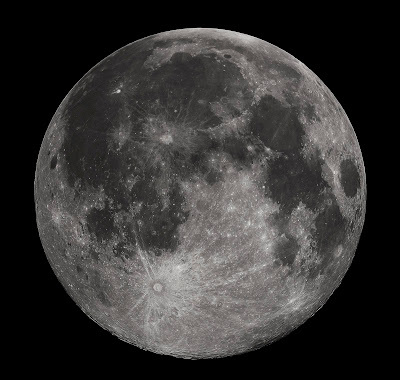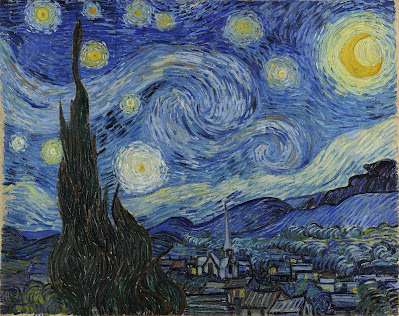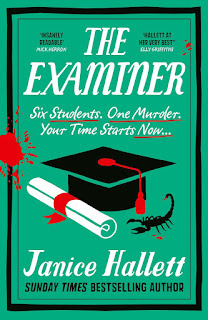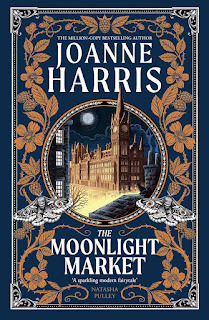Brian Clegg's Blog, page 11
September 30, 2024
Is the Earth gaining a second moon?
 I was amused to read on the BBC News site ‘ Get ready for a cosmic surprise this autumn - Earth is about to get a second moon, according to scientists.’ I named my first science quiz book
How Many Moons does the Earth Have?
precisely because of this kind of silliness. My answer was ‘one’ and it still will be while a chunk of passing rock is briefly caught by Earth’s gravitational pull.
I was amused to read on the BBC News site ‘ Get ready for a cosmic surprise this autumn - Earth is about to get a second moon, according to scientists.’ I named my first science quiz book
How Many Moons does the Earth Have?
precisely because of this kind of silliness. My answer was ‘one’ and it still will be while a chunk of passing rock is briefly caught by Earth’s gravitational pull.Apart from anything, the suggestion that something is a moon just because it is briefly pulled off track by a planet’s gravity seems to reflect an underlying misunderstanding of how gravity works. Everything with mass distorts spacetime and causes moving objects to be displaced from their natural straight line path. This would make practically everything in space a moon if you took this argument to its limit, because they are all being pulled of track by the planets.
The news item is also amusing because back in 2013, the TV show QI claimed that the Earth had a large number of moons (it was QI’s various attempts at numbering our moons at more than one that inspired my book in the first place). If this were true, the current story isn’t even news. But it’s not really: I reproduce below what I wrote at the time.
QI excuse their latest, 20,000 (that's from memory - it was some large number) value [for the number of the Earth’s moons] by saying there are lots of little lumps of rock that get captured by Earth's gravitational field for a few days and while captured they are natural satellites, which makes them moons. But this is the excrement of the male cow. You might as well say the Sun has many thousands of planets, because of all the asteroids, as a planet is a satellite of the Sun. However, we all know there are just eight planets.
Now to be fair, with planets there are clearer rules. To be a planet the body has to (in my wording):
Orbit the SunBe roughly sphericalHave swept its orbit clean of minor debris... this last one being the rule that did for Pluto. But I would suggest, whether or not there is an IAU definition of 'moon' as there is for 'planet' there are still clear intended consequences of using the word 'moon' as opposed to just 'satellite'. These are that the body in question should be:
Long lasting - I suggest staying in orbit for at least 1,000 yearsSizeable - say at least 5 kilometres acrossThis would still allow moon status for the pretty dubious companions of Mars, Phobos and Deimos, which are about 20 kilometres and 10 kilometres across. For comparison, the ‘moon’ described by BBC News is 10 metres across.
Clearly such rules are there implicitly when we talk about moons. If the time rule didn't exist, then every lump of rock that spent 5 minutes in our company would be a moon, while without the size rule, we would have to count every tiny piece of debris in Saturn's rings as a moon - every one of them is, after all, a natural satellite.
Image (which really is a moon) from Wikipedia by Gregory H. Rivera reproduced under CC3.0
These articles will always be free - but if you'd like to support my online work, consider buying a virtual coffee:
See all Brian's online articles or subscribe to a weekly email free hereSeptember 25, 2024
Form without function revisited
 REVISIT SERIES - An edited post from September 2009The white goods company Electrolux has been running a lab design competition to come up with designs for domestic appliances for 2099 (apparently, in 2009 Electrolux was 90 years old). There were eight finalists who came up with various unlikely possibilities, of which the most fruit-cakey are the two I have included here.
REVISIT SERIES - An edited post from September 2009The white goods company Electrolux has been running a lab design competition to come up with designs for domestic appliances for 2099 (apparently, in 2009 Electrolux was 90 years old). There were eight finalists who came up with various unlikely possibilities, of which the most fruit-cakey are the two I have included here.I'm all in favour of designers being given a bit of free rein with creativity if they then refine to reality, but there seems to be a problem with the criteria used to select these designs. Two essentials are missing. Scientific practicality - would this be feasible in 90 years time? - and practical relevance. An obvious question to ask, surely, is who would want a domestic appliance that does this? Each of these 'novel' ideas falls down at one of these hurdles.
The first, shown at the top of the page, is a teleporting fridge. According to designer Dulyawat Wongnawa: Technologies seem to be progressing at an increasingly faster rate nowadays. In the next 90 years, we will see a lot of technologies that today we think are completely impossible. Even though my teleportation concept might sound far-fetched, scientists have already succeeded in teleporting small particles such as photons. So over the next 90 years, this technology will have time to develop and become part of our everyday lives.
Unfortunately there's a disconnect of logic here. The same people who are teleporting photons are very clear that there is no prospect for teleporting an object like the apple used in the 'demonstration' of the fridge. I love the whole business of quantum teleportation - it's one of the stars of my book The God Effect - but I'm really not convinced that it is going to be used to move food around 90 years from now. Note, by the way, that moving is all it does - so that ham that your fridge teleports would have had to be sitting in a warehouse somewhere. Sounds impractically complicated to me. Of course, back in 2009, I didn't have supermarkets delivering food within an hour.
 But at least the fridge is inspired by real science, and there's a vague point. It would be kind of handy for your fridge to be able to summon up produce through the airwaves (though, to be honest, if I were designing it, I would have the items delivered into a closed fridge, rather than an open box). By comparison, the other design I want to highlight does something of magnificent pointlessness. It's a greenhouse designed to roam around Mars, scouting for material to keep alive a single plant in the top of it.
But at least the fridge is inspired by real science, and there's a vague point. It would be kind of handy for your fridge to be able to summon up produce through the airwaves (though, to be honest, if I were designing it, I would have the items delivered into a closed fridge, rather than an open box). By comparison, the other design I want to highlight does something of magnificent pointlessness. It's a greenhouse designed to roam around Mars, scouting for material to keep alive a single plant in the top of it.Why? In what possible way would anyone want one of these for the kitchen? Designer Martin Miklica struggles to answer the question 'What are the main consumer benefits of your product?' with this magnificent piece of woffle: One thing you notice on Mars is the silence and serenity. That’s quite good for one week’s vacation in the countryside, but for modern people it’s very depressing to live in such a place for several months or years. Therefore, the main benefit of Le Petit Prince is that it’s not just a machine, but more like a pet or silent friend that you can speak to when you aren’t in the mood to talk to people. On top of that, it is a good gardener that grows any plant you want or need to bare [sic] life or just for its beauty.
Right. I'll have two.
These articles will always be free - but if you'd like to support my online work, consider buying a virtual coffee:
See all Brian's online articles or subscribe to a weekly email free hereSeptember 24, 2024
Scientists - please stop trying to appear art-friendly by making absurd statements
 While some from the arts or educated in the humanities proclaim a profound disinterest in science, most scientists have an interest in the arts. However, sometimes scientists go too far in trying to appear art-friendly or to make arty types feel loved. One of the most egregious examples of this recently has been the attempt to claim that Vincent van Gogh had a deep and intuitive understanding of fluid dynamics.
While some from the arts or educated in the humanities proclaim a profound disinterest in science, most scientists have an interest in the arts. However, sometimes scientists go too far in trying to appear art-friendly or to make arty types feel loved. One of the most egregious examples of this recently has been the attempt to claim that Vincent van Gogh had a deep and intuitive understanding of fluid dynamics.Last Wednesday's Times newspaper dedicated more than half a page to this bizarre suggestion. According to article-writer Rhys Blakely, a study of one of van Gogh's most famous paintings, The Starry Night 'suggests he also had an uncanny grasp of some of the most elusive laws of physics.' No he didn't.
The idea from this study, lead author Dr Yongxiang Huang of the Hong Kong University of Science and Technology is that the swirly bits in van Gogh's painting are 'not randomly placed' but rather 'follow patterns that appear at just the right distances from one another with the correct size differences and intensities - as predicted by Kolmogorov's physical laws of turbulence.' (Incidentally, this idea isn't new - it featured in a pre-print from 2006.)
I'm sorry, but this is pure fantasy - wishful thinking from those who want to see a connection where none exists. At the very best this is falling into the trap of confusing correlation with causality. There is no reason to suppose that the painter had some uncanny grasp of something not observable by human senses. At the worst it's playing fast and loose with data that vaguely approximates to theory.
We shouldn't need this kind of justification to the art world for science. It's embarrassing. The article mentions Richard Feynman - it would have been more beneficial to have read Feynman's address on 'cargo cult science' because refers to a parallel with what we see here, even though the application is rather different.
Still, it's a great painting and inspired a rather good piece of music in Don McLean's Vincent (even if I disagree with McLean that lovers often commit suicide).
Image: public domain
These articles will always be free - but if you'd like to support my online work, consider buying a virtual coffee:
See all Brian's online articles or subscribe to a weekly email free hereSeptember 17, 2024
Variations (and Fantasias) on a theme are great
 Some of my favourite pieces of music are variations (or variants) on a theme. Unlike a pop cover version, these aren’t just a different arrangement of the same song, but rather the composer takes a snippet of music, often by someone else and go off in all sorts of directions. My personal favourite is the Ralph Vaughan Williams piece
Fantasia on a Theme by Thomas Tallis
(it’s a fantasia because it’s a looser continuous form referencing the original, rather than a set of separate variations, but in essence it's the same kind of thing). The original is a rather staid (though beautiful) hymn tune, but Vaughan Williams takes it to amazing new heights.
Some of my favourite pieces of music are variations (or variants) on a theme. Unlike a pop cover version, these aren’t just a different arrangement of the same song, but rather the composer takes a snippet of music, often by someone else and go off in all sorts of directions. My personal favourite is the Ralph Vaughan Williams piece
Fantasia on a Theme by Thomas Tallis
(it’s a fantasia because it’s a looser continuous form referencing the original, rather than a set of separate variations, but in essence it's the same kind of thing). The original is a rather staid (though beautiful) hymn tune, but Vaughan Williams takes it to amazing new heights.I was therefore rather disappointed listening to composer Debbie Wiseman talking about her Paralympic homecoming piece I'm Walking with You (played beautifully by a blind pianist called Lucy - I don't think she's called 'Lucy the pianist' as the image seems to suggest, I think she featured in a TV show called The Pianist).
I may have missed it, but I heard no mention of the fact that Wiseman's piece is a variation (or fantasia) on a theme by Handel. It was just referred to as a ‘song’ by the composer. On her website, all it says is 'Debbie Wiseman has composed a new piece.'
I don’t claim any originality in this observation. I can’t imagine that anyone who knows Handel’s Sarabande wouldn’t spot the relationship. It just seemed a pity that this doesn’t appear in the title and wasn’t a point discussed with the radio programme’s presenter.
To give an appropriate comparison, as Wiseman's piece is primarily on piano, here's a piano version of the Sarabande (I suggest listening to the first 20 seconds or so then switching to the other for immediate comparison):
And here's Wiseman's piece:
These articles will always be free - but if you'd like to support my online work, consider buying a virtual coffee:
See all Brian's online articles or subscribe to a weekly email free hereSeptember 16, 2024
Midsomer Madness revisited
 REVISIT SERIES -
REVISIT SERIES - A post from September 2012It can be highly entertaining when a drama series attempts to incorporate science into the plot, so last night I watched Midsomer Murders, and the entertainment came thick and fast.
In this particular case, the science in question was astronomy. We started with a dramatic scene. A total eclipse of the Sun. Many folk from kids to serious astronomers are gathering to a witness it. I was a little unhappy with the advice an expert gave a youngster (roughly 'don't look at it through binoculars or a telescope...' so far so good... 'unless you use one of these filters.' Not so good.) But we'll overlook that. What, though, about the eclipse itself? These don't happen randomly, after all.
From the car registrations this clearly wasn't the last eclipse visible in the UK in 1999. Anyway, while the location of Midsomer isn't specified (it's filmed in Buckinghamshire and Berkshire), it clearly isn't Cornwall. And the next eclipse visible here... is not until 2090. Hmm.
This falls into the 'irritating but possibly allowable to keep the story going' class. But the next one was a doozie. In a conversation with Inspector Barnaby, an astronomy professor is musing over the meteorite that killed someone during the eclipse. (Don't ask.) I nearly literally rolled on the floor laughing. So wonderful was it that I have gone back on ITV Player to get an exact transcript of his words.
There's megatons of metal floating around out there. Carbon compressed to its deepest density, sucked into black holes. Which is probably where our own planet will end its days.What?!? There are not words to describe the awe I feel at the magnificent incorrectness of that little speech. What black holes? If the carbon was sucked into them, how did it get out again? No, it's not 'probably where our own planet will end its days.' Lovely.
One other example that raised a snigger. One of the amateur astronomers who had supposedly discovered an extra-solar planet (yes, I know) is asked for an alibi during another murder. It was nighttime and, like most astronomers he was observing. Good alibi. But then he has to go and give some detail that spoils it. I haven't bothered finding the exact wording but it was approximately 'I was watching the transit of Venus.' Marvellous. Leaving aside the fact that this is a rarer event than a solar eclipse, there's one big problem. Like eclipses, transits of Venus are one of the few times when astronomers get to observe during the day. It's Venus crossing the face of the Sun. It happens in daytime. So not exactly a great nighttime alibi. For one brief moment I thought this might be an intentional clue, a subtle hint that this was the killer. But no. It was just a script error.
On one level, moaning about this kind of thing is nerdy silliness. It's a story, get over it. But on another level it is perfectly legitimate. Making a two hour drama is an expensive business. They could have afforded a few hundred pounds to have someone who knew their science look over the script. (I'm available, TV people!) The eclipse itself we'd let through, because it was fairly central to the plot, and so it's fine to bend the facts. But the dialogue that went horribly wrong could easily have been made accurate without any impact on the storyline. Surely they could have managed that?
Image from Unsplash by Averie Woodard
These articles will always be free - but if you'd like to support my online work, consider buying a virtual coffee:
See all Brian's online articles or subscribe to a weekly email free hereSeptember 10, 2024
The Examiner - Janice Hallett *****
 Ever since the release of her stunning
The Appeal
, Janice Hallett has amazed with her ability to tell a mystery story through the medium of a collection of documents - The Examiner maintains that remarkable quality. Here the main vehicle is a university intranet’s chat groups, though we do also get some emails and WhatsApp threads.
Ever since the release of her stunning
The Appeal
, Janice Hallett has amazed with her ability to tell a mystery story through the medium of a collection of documents - The Examiner maintains that remarkable quality. Here the main vehicle is a university intranet’s chat groups, though we do also get some emails and WhatsApp threads.The setting is a new MA course in multimedia arts, where the six students are very diverse. We are told right up front that there is a suspicion that one of the participants has died. Once again, Hallett enables us to get a wonderful picture of the personalities of the course members and their tutor - and it rapidly becomes clear that something odd is going on. The delight is in working out exactly what has happened and why.
Along the way there are several big twists as different evidence emerges. One of these is brilliant - only achievable through this kind of storytelling. And while the underlying plot is in places quite dark, Hallett continues to be able to include a considerable amount of humour, often in the lack of self-awareness of some of her characters.
My only mild negative here is that elements of the plot when finally fully revealed are, to say the least, far fetched. But that didn’t spoil my continuing admiration for the skill with which Hallett assembles these amazing novels. The epistolary form often makes a book feel a little sterile, distancing the reader from the characters and from the action, but it never does in Hallett’s novels. Superb.
See all of Brian's online articles or subscribe to a weekly digest for free here You can buy The Examiner from Amazon.co.uk Amazon.com and Bookshop.org
Using these links earns us commission at no cost to youThese articles will always be free - but if you'd like to support my online work, consider buying a virtual coffee:Review by Brian Clegg - See all Brian's online articles or subscribe to a weekly email free here
September 9, 2024
The New Tyson Fight Revisited
REVISIT SERIES -
A post from September 2014

One of the interesting aftermaths of the Scottish Referendum debate was that I have seen a number of people saying 'A lesson to learn is don't trust the traditional media, get your information from social media.' I know where they were coming from, but there are two dangers here - one is that (even more than watching, say, Fox News) you won't get information you will get propaganda, and the other is that even when you aren't being told what you want to hear by your friends and political allies, a lot of internet sources are unreliable. The Tyson story I want to tell you illustrates this doubly.
The Tyson in question is not Mike, but science populariser and astronomer, Neil deGrasse Tyson. I was surprised the other day to hear that Tyson was being pilloried for making up quotes to support an argument. The argument in question is that a lot of people (including many in the media and our elected representatives) are extremely ignorant about science and so (I presume) aren't well equipped to make decisions about science teaching and science funding. This is an argument I strongly support - but clearly not by making up data.
There seem to be three quotes that have caused the furore. Tyson claims that:
Tyson's detractors claim the following:The Bush quote was not made after 9/11, but after the Columbia disaster and he actually said 'The same Creator who names the stars also knowns the names of the seven souls we mourn today.' This had nothing to do with Christians versus Muslims and was simple consoling rhetoric.There is no evidence of the 360 degree comment being made as quoted, though Representative Maxine Waters did say 'You have done a 360 degree turn' to someone.The information on schools below average in the headline, which no one can find, could well be false, so Tyson misunderstood statistics by claiming that you would have re-think the foundations of mathematics if it were false.Others have weighed in claiming that this is a anti-intellectual right wing campaign against Tyson, some even suggesting that it is because he is black.
What really applies? As far as the basic facts go, the detractors mostly have it right. The Bush quote was misapplied and misquoted. The 360 degree 'quote' was not word for word. And in principle the headline could be reasonable and can't be found in a New York City newspaper headline (online, at least). The reason the headline could be reasonable is that it is not true that exactly half a population will be below average, as Tyson seemed to imply. Take for instance a room full of ordinary people and Bill Gates. Look at the average net worth of the people in that room. Chances are everyone except Bill is below the average. The number that is in the middle of the grouping is not the average, it's the median.
So what have we established? Tyson's use of the Bush quote was a real, and unpleasant error in the way he misused it. The 360 degree quote was mis-worded, probably typed from memory - he should really have checked, but frankly it's close enough. And no one can find the 'below average' quote, but if it were true, we needed more information to criticize it, as it isn't stupid in its own right. It's still quite likely the newspaper was misreading the information (apart from anything else, the media often call a median an average because they think the readers don't understand 'median' - see my article on this happening over 'average house prices'.) So Tyson could have been making a worthwhile point, but it would have needed a lot more unpacking than he actually did to be sure.
To be honest, I don't like Tyson's approach to public speaking - it tends to the pompous and bombastic (perhaps this is just a US/UK style thing), belittling those who don't agree, which I don't think is a great way to make an argument, even if they are wrong. He made a clear mistake on the Bush quote and messed up with the the 'below average' business. So he ought to clean his act up, and admit this. But frankly these errors have nothing to do with a serious and important message. So by all means consider Tyson reprimanded - but don't confuse the message and the messenger. What he was saying about the media and the political class being dangerously ignorant of science is still true.
However, those who defend Tyson saying this is a fuss over nothing are also wrong. He is not a gutter press journalist, he's a scientist. And he knows perfectly well that two of the biggest failures for a scientist are to make up data, and to rely on anecdotal evidence. And he has clearly done at least one of these here. It was a serious error of judgement, hence the need to apologise.
The reason I said at the beginning that this is a double error of trusting unverified online sources is that firstly people have been coming out pro and anti Tyson based on reports that take one or the other extreme view on what happened, and secondly because I suspect the reason Tyson got the quotes wrong in the first place was that he too relied on a dubious internet source. We all slip this way occasionally. I certainly have. But it's a good reason for taking a step back from that 'get your information from social media' suggestion.
"Neil deGrasse Tyson August 3, 2014 (cropped)" by Mingle Media TV - https://www.flickr.com/photos/minglem.... Licensed under Creative Commons Attribution-Share Alike 2.0 via Wikimedia Commons
These articles will always be free - but if you'd like to support my online work, consider buying a virtual coffee:
See all Brian's online articles or subscribe to a weekly email free hereAugust 27, 2024
Don't Knock the Cox revisited
 REVISIT SERIES -
REVISIT SERIES - A post from August 2011 (text updated)It has become popular in the science writing community to be slightly sniffy about Brian Cox.
As spoof videos like the one below show, the style of his TV show is easy to mock, with a tendency to go to some distant location just to make a passing comment - but that says much more about the BBC's distinctly tired documentary style (I blame that nice David Attenborough myself) than it does about Brian Cox himself.
Personally speaking, I think those of us who write science books should be very happy about Brian Cox's appearances It's hard not to suspect just a smidgeon of jealously amongst those who knock the Cox. But in reality, what he does gives more exposure to science and is liable to encourage some of those millions of viewers to find out more, which is where those of us with the more in-depth books can step in. (For that matter, they might move onto Cox's own excellent books with Jeff Forshaw, such as The Quantum Universe .)
A couple of times since his series has been on I've been asked by people who didn't know I was a science writer 'Did you see Brian Cox's programme last night'... which can't be bad. It has raised the profile of science. Of course some people think that his slightly manic enthusiasm is fake - but it really isn't. I had coffee with him a number of years ago while waiting to do a joint gig at the Science Museum's Dana Centre in London (this was before his TV appearances) and he was just as enthusiastic then, and though rather dazzled by the media, came across as a genuine nice guy. He even kindly wrote a piece for my Popular Science site.
So please, fellow science writers, don't knock the Cox. Instead celebrate the exposure he continues to give to physics.
Image of Brian Cox by Duncan Hull from Wikipedia, licensed under CC4.0
These articles will always be free - but if you'd like to support my online work, consider buying a virtual coffee: See all Brian's online articles or subscribe to a weekly email free here
August 21, 2024
Bach to the Future revisited
 REVISIT SERIES -
REVISIT SERIES - A post from August 2010 (text updated)
A string of somewhat trollish comments in my eariler post criticizing opera reminds me that music can raise strong emotions. One emotion that music rarely does well is humour. Generally musicians tend to the twee or even downright painful when trying to be funny. Which is why I want to make sure no one forgets P. D. Q. Bach, the last, least and funniest of the children of the great J. S.
I don't think I give too many secrets away in saying that P. D. Q. is the invention of Peter Schickele, self-styled professor at the University of Southern North Dakota, Hoople. Schickele has put on a number of concerts and produced a range of recordings over the years celebrating P.D.Q.'s fictional musical output, which strays through many musical styles. Sometimes he can write a piece of some length and complexity without a single original musical theme in it, wonderfully and anachronistically stealing from left, right and centre. At other times he sets a piece for unlikely combinations of instruments like his Pervertimento for Bicycle, Bagpipes, and Balloons. Or he simply sets wonderful words, as in his madrigal where the original line 'Your face is like the sun,' is, when repeated, overlaid by a second line that runs '...set over Pittsburgh USA.'For anyone who cares about music, there is a huge rich vein in all the references Schickele builds in, along with a magnificent fictional biography of the great-ish man himself.
This is absolutely wonderful stuff. I first came across it accidentally on a record in Cambridge over 40 years ago and have since collected quite a few of the records on vinyl (though thankfully some is now available to stream, as I no longer have a record player), as well as the P.D.Q. biography. All well worth hunting out.
You can buy The Definitive Biography from Amazon.co.uk, Amazon.com and Bookshop.org
Using these links earns us commission at no cost to you
See all of Brian's online articles or subscribe to a weekly digest for free here
August 19, 2024
The Moonlight Market - Joanne Harris ****
 There's a popular marketing approach that involves describing a book as 'X meets Y' - in the case of this new urban fantasy fairy story by Joanne Harris, we're told it's 'Neverwhere meets Stardust' - and I've never seen such an accurate comparison. Yet Neil Gaiman need not worry: although there are strong echoes of both books here, this is never a ripoff of his work.
There's a popular marketing approach that involves describing a book as 'X meets Y' - in the case of this new urban fantasy fairy story by Joanne Harris, we're told it's 'Neverwhere meets Stardust' - and I've never seen such an accurate comparison. Yet Neil Gaiman need not worry: although there are strong echoes of both books here, this is never a ripoff of his work.If you've only ever associated Joanne Harris with romance (perhaps in the form of her novel/film Chocolat) she may seem an unlikely author for the genre - but she has form with her excellent Gospel of Loki - and, as was the case with Neverwhere, this is a romance in its own way, underlining the difference between lust (or glamour) and love.
The similarity to Neverwhere is that the book features a London with a mysterious magical hidden side, including the secret nighttime market of the title, into which our innocent main character Tom is plunged, while the Stardust side comes with the unknown magical nature of the main character and its gradual revelation. We also get a classic fantasy setting of a location that is only visible, or not ruined in moonlight. In this case it's Old London Bridge*, where that market takes place when the moon is out.
The central theme is of a centuries-old enmity between two groups of humanoid creatures, one moth-like, the other butterfly-based. At some point in the past the Moth king and Butterfly queen fell in love and had a child - but this child is no more with only vague echoes of his existence and the creatures have lost their kingdom, been existing in London ever since, in part thanks to the meddling of a mysterious Spider mage. All too often when a fantasy writer invokes fairytale the writing style becomes dull, but Harris avoids this and manages to make these earthbound creatures believable.
The one really irritating thing about this book is the hero, who is perhaps the least perceptive main character ever known. Not only does he repeatedly (many, many times) ignore everyone who tells him that his obsession with a character called Vanessa is both doomed and due to an illusion, he is also totally oblivious to the much more attractive sounding character who loves him. When it is finally revealed that this is the case, he bewails 'But she hit me with a brick!' (technically true, but it was to save his life). Has he not seen practically any romcom from Much Ado About Nothing to the present day? A bit of this sort of thing is entertaining, but it is sustained for too long.
Overall, though, a highly satisfying urban fairy tale fantasy read.
* The cover oddly seems to suggest that Old London Bridge was where Westminster Bridge is now. It wasn't. UPDATE: Thanks to Joanne Harris for pointing out that the image is, of course, St Pancras Station. I was confused as I'd looked at the US cover, which does show Westminster and saw the UK image as a stylised version, imagining I was still seeing the Thames.
See all of Brian's online articles or subscribe to a weekly digest for free here You can buy The Moonlight Market from Amazon.co.uk Amazon.com and Bookshop.org
Using these links earns us commission at no cost to you



